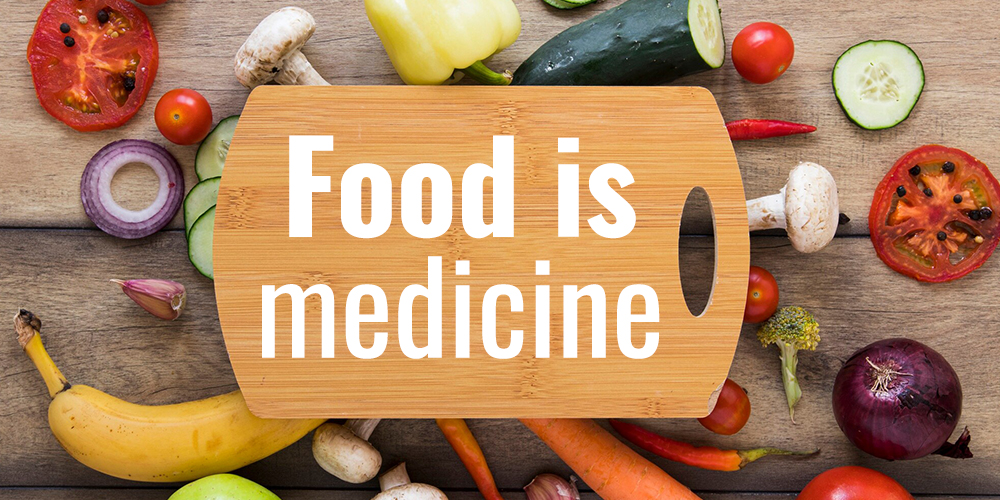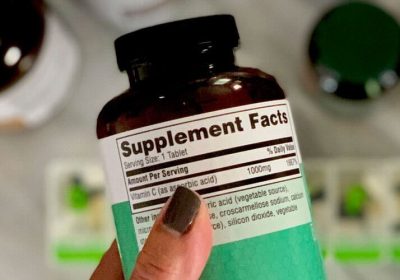Two recent studies provide further evidence for the ancient maxim “Let food be thy medicine.” It’s time for Congress to take concrete steps towards recognizing the truth in those words. Action Alert!
The studies, one from Tufts University and a second from the Public Health Institute (PHI), found substantial health and economic benefits from using food to both treat and prevent chronic disease. Shhh….don’t tell the FDA though, because the agency follows the letter of the law, and the law says if you talk publicly about the simple notion of using a food product as a medicine, that turns it into a drug! (Cherry and walnut growers found that out the hard way a few years back.) These results, added to the pile of evidence that has accrued over the years, are further justification for Congress to formally recognize that food is medicine and to expand consumer access to those kinds of healthcare options.
The studies looked at the effects of medically tailored meals (MTMs) and produce prescription programs to address diabetes and a host of other chronic diseases. MTMs are fully prepared, healthy meals for individuals living with conditions such as diabetes, heart failure, end-stage kidney disease, HIV infection, and cancer. Produce prescription programs provide discounted or free produce through electronic benefit cards or paper vouchers redeemable at grocery stores or farmers markets.
The Tufts study estimated that national implementation of MTMs could avert 1.6 million hospitalizations and save $13.6 billion in health care costs in the first year alone. Produce prescription programs, the authors found, could avert 292,000 cardiovascular events.
The PHI study, of its Healthy Food Rx project, similarly found that diabetic patients taking part in their produce prescription program reported statistically significant improvements in hemoglobin A1C and diabetes self-management activities. These included more physical activity, following a meal plan, and going to nutrition and diabetes management classes.
Consider the following from the Tufts report:
Poor nutrition is the leading driver of death and disability in the United States, including from heart disease, stroke, type 2 diabetes, obesity, hypertension, and some cancers, and has staggering costs to society. The economic costs of suboptimal diets due to health care spending and lost productivity are estimated at $1.1 trillion each year — equaling the economic output of the entire food sector… Today, 1 in 2 U.S. adults has diabetes or prediabetes, 3 in 4 [are overweight or obese], and 14 in 15 have suboptimal cardiometabolic health.
Translation: The wrong kind of food kills, the right kind of food is medicine! It’s a notion that’s integral to our DNA here at ANH, and we’re deeply concerned that the legal basis that determines what is a food and what is a drug is not fit for purpose. Over the last 70 or so years, the drug companies have stitched up legislation to make the scope of the definition so broad, it catches any product that helps prevent, mitigate, or treat disease. This gives the FDA, with its revolving doors with Big Pharma, carte blanche to go after any food product that makes a medicinal or drug claim, even if the science demonstrating this is indisputable. As we’ve seen, the agency is openly hostile to food-based medicines that we know work but haven’t had the millions it takes to go through FDA approval.

Some in Congress fortunately recognize that getting healthy food and supplements into the hands of Americans is something worth doing. Senator Kevin Cramer (R-ND) has reintroduced legislation to allow dietary supplements to be purchased with Health Savings Accounts (HSA), Flexible Savings Accounts (FSA), and Health Reimbursement Arrangements (HRA).
HSAs allow consumers to pay for current health care expenses and save for future expenses. They offer a number of advantages. First, HSA contributions are tax-deductible. Second, the interest earned on money in the account is tax-free. Third, tax-free withdrawals can be made for qualified medical expenses. HSAs are also a good way to put money aside for health expenses later in life, when these costs may increase. A Flexible Spending Account is a benefit that allows you to set aside money from your paycheck, pre-tax, to pay for healthcare expenses. An HRA is a type of HSA that is provided and owned by an employer.
Allowing HSAs, FSAs, and HRAs to cover the cost of dietary supplements will expand consumer access to products that can make us healthier. It is a small step toward a wider recognition among policymakers that food is medicine, and we’ve already started thinking seriously about how we might be able to initiate reforms to legislation and policy that are in line with the increasingly widely accepted notion that food is the cheapest, most effective and most accessible medicine available — bar none.
Action Alert! Write to Congress in support of expanded HSAs, FSAs, and HRAs. Please send your message immediately.



